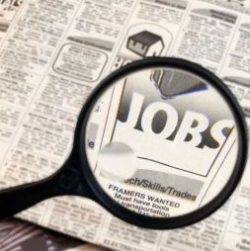February 28, 2017
Digitisation of workplace boosts earning powers in creative and design sector 0

The rise of the gig economy and social media platforms have pushed creative and design jobs up the salary ranks, according to the latest UK Job Market Report from Adzuna.co.uk. In January, average salaries in this sector saw an annual increase of 2.2 percent to £31,828, with its popularity being driven by factors such as the new digital age coupled with the expertise of graduates who step into the jobs market with a fresh outlook on social media channels such as Snapchat and Instagram, which are highly valuable to employees. Across the job market, the employment rate stands at 74.6 percent, the highest since comparable records began in 1971 according to the ONS. This has been helped by a record proportion of women in work, with so-called ‘returnships’ – a type of later-life work experience helping older people, predominantly women back into the workplace – boosting the figures. Immigration may have tailed off in the wake of Brexit, but this also previously helped stimulate the jobs market.










 With the UK facing at best, very slow growth, or even shrinkage, of the working population, future changes to migration levels into the UK due to Brexit could exacerbate the financial stresses and strains caused by the UK’s aging workforce. This is according to the
With the UK facing at best, very slow growth, or even shrinkage, of the working population, future changes to migration levels into the UK due to Brexit could exacerbate the financial stresses and strains caused by the UK’s aging workforce. This is according to the 
 Amos Tversky and Daniel Kahneman introduced the concept of Loss Aversion in 1984, highlighting people’s tendency to strongly prefer avoiding losses to acquiring gains. Most studies suggest that losses are twice as powerful, psychologically, as gains. Lose £100 and we will feel a remorse that easily outweighs winning £100. In a similar fashion we find it very hard to see future positives when confronted with short term loses. We understand easily what we have lost but cannot imagine what there is to be gained. Furthermore, as Frederic Bastiat wrote in an 1850 paper, “That Which is Seen, and That Which is Not Seen”, man has a tendency to “pursue a small present good, which will be followed by a great evil to come, rather than a great good to come, at the risk of a small present evil”. Put these together and it is no wonder that, by and large, the future of work, corporate real estate and the workplace is so widely misunderstood.
Amos Tversky and Daniel Kahneman introduced the concept of Loss Aversion in 1984, highlighting people’s tendency to strongly prefer avoiding losses to acquiring gains. Most studies suggest that losses are twice as powerful, psychologically, as gains. Lose £100 and we will feel a remorse that easily outweighs winning £100. In a similar fashion we find it very hard to see future positives when confronted with short term loses. We understand easily what we have lost but cannot imagine what there is to be gained. Furthermore, as Frederic Bastiat wrote in an 1850 paper, “That Which is Seen, and That Which is Not Seen”, man has a tendency to “pursue a small present good, which will be followed by a great evil to come, rather than a great good to come, at the risk of a small present evil”. Put these together and it is no wonder that, by and large, the future of work, corporate real estate and the workplace is so widely misunderstood.

































